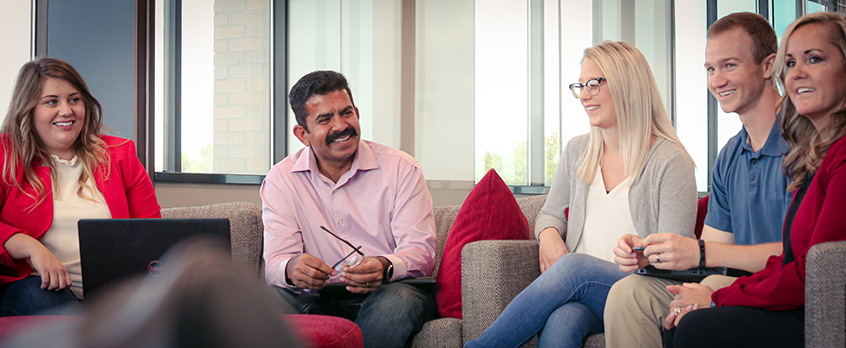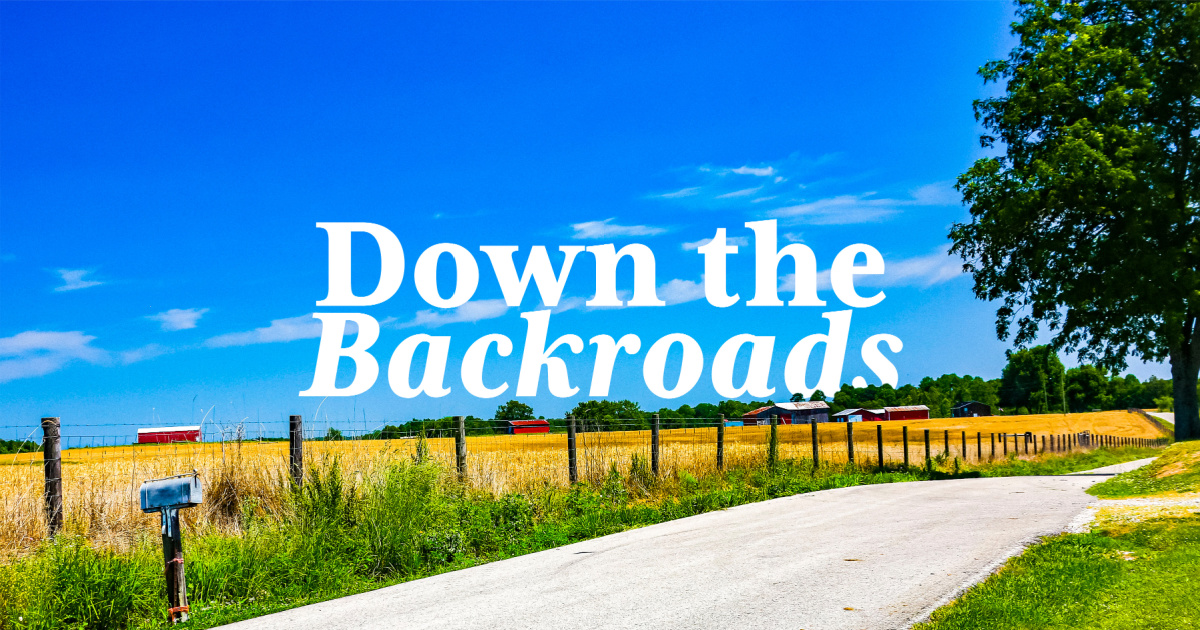Why KFB?

We take pride in a friendly company culture, a healthy work-life balance and our commitment to a happier you.
When you’re here, you’re not just another face in a cubicle. Those who make up the KFB family define who we are. Here are just some of the ways we thank them:
Calendar Of Events
Kentucky Cattle Auction Report - September 9, 2025
Weekly Economic Report - September 8, 2025
Kentucky Tobacco, Still a Tradition for Growers

Although the crop is significantly smaller than it was 30 years ago, it still holds a place on Kentucky's agricultural map.
In 1994, Kentucky tobacco producers grew 187,000 acres of tobacco, weighing in at over 453 million pounds and worth nearly $841 million. That was 10 years before the Fair and Equitable Tobacco Reform Act eliminated an antiquated tobacco quota system that had been in place since 1938.
In stark contrast, the 2024 Kentucky tobacco crop consisted of 32,800 acres, and fetched over 75 million pounds, worth nearly $200 million, which was exponentially smaller as market trends have changed in the past three decades.
Luckily, Master Settlement dollars have helped to diversify the state's agricultural landscape thanks to the Kentucky Agricultural Development Fund helping to sustain the family farms once so dependent on their tobacco crops.
But for those still in the business of raising crops, today it is as much about tradition as it is dollars and cents.
Kentucky Farm Bureau Second Vice President Larry Clark grew up on his family's farm in the small community of Exie in Green County, a place where tobacco crops can still be found and the tradition of growing it remains.
“We grew up with the tobacco and dad always taught us to have pride in it, the way we grew it, the way we shipped it, and the way we presented it at the market,” he said. “I think that caused us to have it in our blood, and it is a tradition that we carry on.”
Clark recalls the days of selling a crop at the many tobacco warehouses that could be found throughout the state.
“We did have a system where each farm had so much of a quota on it, and it fluctuated up and down according to the demand for the tobacco,” he said. “In the early 2000s, that quota system went away and was replaced by a contract system, and it's been a lot different ever since.”
No longer were growers subjected to a federal regulatory system, but rather to direct contracts with tobacco companies. Many producers opted for the quota buyout that came along in 2004. That, along with changing market trends, led to the decline in tobacco production.
“When I was growing up, we hand-tied the tobacco and tried to have the stripping finished by Thanksgiving," he said. "Then, we would load the crop onto wagons, haul it to the markets, and spend a day placing the tobacco in baskets, making it look good. In a week or two, we’d go back and watch the buyers follow the auctioneer as he chanted, taking bids. It’s something I’ll never forget. I loved it. Now, we have to go by whatever the companies are willing to pay."
Like so many other farms that depended heavily on a tobacco crop, Clark has diversified his operation today, which consists of cattle, grains, and hemp, to go along with his 218 acres of burley.
“I think the relationships growers have with the tobacco companies are vital to our continuing in the tobacco business, especially for the younger generation," he said. "But we have diversified our farm so our two sons will have the opportunity to continue farming whether they continue to grow tobacco or not."
As with many other crops, tobacco has seen a challenging growing season, especially with all of the spring rains, a time when most producers are setting their tobacco plants.
“It's been very challenging this year, since we've had more water this spring than I can ever remember us having,” Clark said. “The ground was too wet when we planted some of the crop, and you pay for that later in the year. Tobacco doesn't like wet feet! We're going to have a decent crop in places, but in other places we're not.”
Bob Pearce, a burley tobacco specialist and extension professor at the University of Kentucky Martin-Gatton College of Agriculture, Food, and Environment, echoed what Clark said about tobacco crop conditions.
“There are some crops that look really good, and there are some that are really struggling. We had a fair amount that either got planted late or, in some cases, maybe didn't get planted at all because of the weather, so it's all over the place this year.”
Many of the rains that have come this year have been localized, which has led to the good crop here, not so good there, kind of scenario.
“That's some of the reasons we're seeing the spottiness of this crop in some places that did well and other places that didn't, because we've had some rains that have been very localized and sporadic in some cases,” Pearce said.
By press time, much of the state's tobacco crop, good or otherwise, will have been harvested and hanging in barns to cure.
Clark said he loves the smell of the tobacco in the barn, something he remembers from childhood.
"I've lived in this area all my life, and the fourth generation of my family to do so,” he said. “We will continue to farm here and raise tobacco, because that's what we do, it's a family tradition," he said.
President's Column | Ham, Heart, and Heritage, a Good Way to Describe KFB this Time of Year

I’m a firm believer in the good our organization does for this state and our agriculture industry every day of the year. I say it because I believe in it, I have lived it, and I see the fruits of our labor from the front porches of our farmhouses to the Capitol steps in Washington, D.C.
I was reminded of this as I looked out over the crowd during our recent KFB Country Ham Breakfast and Charity Auction, seeing so many familiar faces: people I’ve known for years, people I’ve been proud to work and serve with, people who make up the heart of our organization, KFB leaders and county members.
It was an honor to mention them first during my breakfast remarks. They truly are the foundation of this organization. Never doubt it.
In continuing my remarks, I also realized what a tradition we carry on with this event, and so many others that are a part of our heritage. We’ve lasted nearly 106 years and throughout we have forged a path that has led us to being a strong and true voice of agriculture.
And of course, there’s the ham. Who knew 61 years ago, a champion country ham would serve as the vehicle to drive us to such heights in helping people throughout Kentucky. We are truly blessed to have so many businesses and entrepreneurs who show up every year to keep this tradition alive and well.
I say all that to say this: it is often good to reflect on positive events and successful outcomes to issues, but we also have to continue our advocacy efforts to ensure we move forward on those issues that present challenges on the farm and in our rural communities.
As we get closer to our Resolutions Committee meeting and the next annual meeting coming later in the year, our local and state leaders will be doing just that…looking at ways to make our industry and rural communities better.
This process of moving suggestions from the local level up, is a part of the heritage that began more than a century ago and keeps our organization relevant and successful. Make no mistake about it, KFB has a seat at the table when it comes to discussions that affect our farm families.
This is a busy time of year, on and off the farm, but one we embrace as farmers, as community leaders, and as Farm Bureau members. We welcome the harvest, as well as the upcoming advocacy opportunities that are as much of a tradition as that champion country ham.
Eddie Melton, President
Kentucky Farm Bureau
Tradition Meets Generosity | Kentucky Farm Bureau's Ham Breakfast Raises $10M at State Fair

Political leaders, policy makers, and county members make up a capacity crowd to witness another history-making event.
The 61st Annual Kentucky Farm Bureau (KFB) Country Ham Breakfast and Charity Auction at the Kentucky State Fair brought in a combined winning bid of $10 million in support of Kentucky charities, continuing the longstanding tradition of generosity that has made this event one of the commonwealth’s most anticipated gatherings.
Since its inception in 1964, the breakfast has raised nearly $54 million for nonprofit organizations and other charities across Kentucky; $30.5 million in the last three years, alone, thanks to the combined efforts of Central Bank and Joe and Kelly Craft.
Once again, these two top bidders joined together to come up with this year’s winning total.
Central Bank’s President & CEO, Luther Deaton, said that giving back to the community is something the bank has done since its inception.
“Mr. Garvice Kincaid started this bank in 1946, and he always said, ‘We're going to give back to the communities and we'll take care of the children, and we're going to fund education,’ and that's what we do,” Deaton said. “God has blessed me with so many good relationships, and Joe (Craft) and I have a great relationship, and it's just an honor to be partner with him and our bank to do this. This event is about more than a winning bid — it’s about making a lasting impact. Our team is proud to give back to charities that strengthen communities and provide hope for Kentuckians across the state.”
While the Crafts were away and unable to attend, Jennifer Barber, Partner-in-Charge of Frost Brown Todd's Louisville office, placed the winning bid on their behalf.
“I've been to the ham breakfast many times, and this is a very important event for Kentucky,” she said. “Kelly and Joe Craft would like to thank Kentucky Farm Bureau for hosting this wonderful event again this year. They hope their charitable contributions will help improve the lives of Kentuckians across the Commonwealth. It's a real honor for me to be here to bid on the ham for them.”
Remarks from KFB President
KFB President Eddie Melton thanked all of this year’s bidders with a special shout-out to Central Bank’s Deaton and the Crafts. The combination of their separate bids of $5 million helped push the winning bid to a near record level once again for the State Fair’s Grand Champion country ham.
“While our name is synonymous with the Ham Breakfast every year, it is the charities our bidders support that are really the winners, at the end of the day,” he said. “I’m incredibly thankful for our businesses and entrepreneurs who have made this event a tradition of their own.”
Melton addressed the crowd of over 1,600 before the auction took place, beginning his remarks with thanks to the county Farm Bureau members and leaders in the room, and across the state.
“Our organization can’t do all the great things we do without the continued support of every member in every community throughout Kentucky,” he said. “They truly serve as the foundation of KFB, and we can never thank them enough.”
Specifically, Melton mentioned the efforts county members made in the past year in giving out a record amount of scholarship money to deserving students.
“A prime example of our members’ community involvement is the scholarship programs offered by county Farm Bureaus throughout the state,” he said. “Helping with educational endeavors is one of KFB’s top priorities. This year, a total of 601 state and county scholarships were awarded, worth $810,150, a new record for this program.”
Melton also recognized the work Lt. Governor Jacquline Coleman and Agriculture Commissioner Jonathan Shell are doing in getting ag education to elementary students across the state.
From a policy perspective, Melton mentioned the efforts being made, at all levels, to move KFB’s Kentucky Farmland Transition Initiative (KFTI) forward.
“Legislatively, House Bill 703 was introduced by State Representative Myron Dossett to make changes to the Kentucky Selling Farmer Tax Credit, making the credit work for more farmers and providing greater certainty for sellers,” he said. “Provisions of this bill were included in HB 775.”
In addition, Melton talked about the contribution Kentucky U.S. Senator Mitch McConnell made to farmland transition with the introduction of the Protecting American Farmlands Act.
“Sections of that bill were included in the recently signed reconciliation bill,” he told the crowd. “We were able to work with Senator McConnell to establish the first-ever provision in the federal tax code to provide some relief on capital gains taxes for sales of land that stays in farming.”
McConnell received a special welcome and recognition for his long support of agriculture and the many years he has devoted to the Commonwealth as he prepares to leave his Senate seat after his term expires next year.
Melton concluded his remarks with a call to get the farm bill finished.
“While we appreciate the support of agriculture in the recent reconciliation bill, let’s finish this work by passing a new farm bill,” he said. “Together, the two will update programs and add certainty for farm families as they continue to produce our nation’s food supply. Food security is national security.”
Candid Conversation | USDA Deputy Secretary Stephen Vaden

Candid Conversation presents a question-and-answer discussion about the topical issues related to Kentucky Farm Bureau (KFB) priorities, the agricultural industry, and rural communities. In an exclusive interview, USDA Deputy Secretary Stephen Vaden discusses the issues and opportunities facing the ag industry as he settles into his new role. Vaden's family has a long historic presence in far western Kentucky and his home state of Tennessee. He owns two farms, one in each state just miles apart. On July 8, he was sworn in as the new USDA Deputy Secretary.
KFB: Would you share with our readers a little of the background of your Kentucky farm?
SV: The farm in Fulton County, Kentucky is the oldest one that we own and it actually dates back to before the Kentucky State Legislature formally established it as a county. We have the original plaque of the county when it was established, and my ancestor owned this farm in exactly its current dimensions. Now, here we are nearly two centuries later, and the same family still owns the same land. So, I'm immensely proud of that.”
KFB: So often we see a storied history connected to our farm families. How does it feel to have that kind of heritage associated with the farm?
SV: Agriculture really is a family. And if you talk to anyone else who's involved (in the industry), just the fact that you share that common set of values, that common way of making a living, you know what that person is going through, whether it be good or bad, and you can commiserate. That is so important, the family nature of agriculture, that honestly, when we meet, we're not necessarily looking to compete, we're looking for ways to help each other out so that we can all succeed. And that's what makes agriculture so special.
KFB: Farm life has always traditionally had its share of trials and triumphs, there's lots going on, especially today. What are some of the more challenging issues you see facing our farm families today?
SV: Well, obviously the first issue is the low commodity prices and the high cost of production. That is the worst possible combination, and we've got to create more markets for our agricultural goods, whether it be domestic or overseas, because the only thing that is going to cure low commodity prices is more demand. That's what we've got to be focused on at USDA.
KFB: In keeping with the creation of more markets, especially from a trade perspective, we are in the midst of a growing ag trade deficit. What measures can we take to curb that situation knowing it’s not an overnight fix?
SV: It isn't a problem that developed overnight, and it won't be a solution that comes overnight, but what we've got to do is to stop accepting other countries creating barriers to American farmers selling their goods overseas. We've got to have as close as possible a zero-tolerance attitude to anyone who wants to keep an American farmer from selling his or her products to overseas consumers. We know we win because of the quality and the quantity that we produce here in the United States of America, and that's why so many people want to keep our products out of their countries, is because they know they can't compete with us if it's a fair competition.
KFB: Most of the farms that we have in Kentucky, as well as many other states, are smaller family farms. How critical are trade markets are their farms and do you think they fully understand that even the smaller operations have a stake in agricultural trade?
SV: Well, it's really simple. A rising tide lifts all boats. And even if you and your operation may sell only domestically, the prices that you're able to get for your commodities are determined by the total overall demand for those commodities, and that includes international demand for American agricultural goods. If demand is lower, the price you're going to be able to get for those commodities is lower, even if you're only selling domestically. The more people we can get interested in American agricultural products, the higher prices will be, whether you're selling domestically or internationally.
KFB: And we've got some folks in Washington D.C. who are zeroed in on that right now, don't we?
SV: That's right. We've got an entire trade team, and they know, because the President demands, you can't have a trade discussion with the United States unless you're willing to talk about agriculture. And if you're not willing to talk about agriculture, the President isn't interested in making a comprehensive deal with you because you're not being serious.
KFB: We often hear that we grow the safest food supply in the world because of all the regulatory steps required in growing our crops. Yet, some people don't realize that and some are against some of the measures farms take to ensure the success of their crops. What do we say to those naysayers?
SV: If we're talking about a chemical that is used on something that comes from a farm that people eat, it has gone through so many regulatory checks, that it would boggle most people's minds. And you have to keep in mind that the people, the regulators who are doing this, whether we're talking about the Environmental Protection Agency or some other agency, they're not farmers and they're not particularly, to be honest, friendly to ag.
They're looking for anything and everything that could possibly be harmful to say no to whatever it is that's being proposed to be used on a food product. And so if something has gone through that process, the consumer should rest safe in knowing that it is truly safe and they shouldn't give a second thought to it. America has the safest, most efficient agricultural production in the world, and we should be proud of that.
KFB: We often say, "Food security is national security." How do we do a better job of emphasizing to the public that point, especially for all those, not only consumers, but lawmakers who are far removed from the farm, and may not understand how critical is it to keep our farms sustainable today, and for the future?
SV: During President Trump's first term, I served as the USDA representative to something called the Committee on Foreign Investment in the United States. That's the committee that looks at foreign investments in the United States to ensure that there are no national security concerns. Whenever I was dealing with counterparts from other federal agencies, one of the things that I emphasized is, is that if a nation cannot feed itself, nothing else matters. Because the first thing you've got to have in order to have military strength is an army that's fed. So, food security truly is national security.
And I'm happy to see with the debate over foreign ownership of farmland that more people are coming to the understanding that we need to care about who owns our agribusinesses. We need to care about who owns our farmland, and we need to care about whether or not any particular investment in this country could be used to take out of American control and out of American hands our most vital resource, our agriculturally productive land and the technology that we have created to make that land more effective. I'm very optimistic that more people than ever are aware that national security is inextricably tied up with the success of American agriculture.
KFB: Let’s switch gears and talk about getting the next generation coming to the farm. How critical is it to get those younger people involved and what can we do to encourage them to come to or stay on the farm?
SV: In any business, if you want to continue it on, you've got to have a succession plan, and agriculture is no different. We need the next generation to step up. And it is very disturbing how the average age of the American farmer seems to only increase. It seems to me that one of the best things that we can do to get young people involved in agriculture is to make agriculture as productive, profit-wise, as it can be, and right now it's not. And so, you have to have an extra personal drive to be involved in agriculture. We need to work on policies that make agriculture profitable because ultimately, it's that profit that will help draw people to our industry and want to invest in it, want to be a part of it, and want to continue it on for the next generation.
KFB: Farmers have to be the ultimate optimist, and when faced with challenges, often, I they also look for opportunities. What are some of those opportunities that you see for folks on the farm and in the ag industry today?
SV: I'm excited about the fact that some of the adversaries that we may have had in the past are increasingly turned into allies. I think about the biofuels debate, the way the biofuels debate has changed over the last five years is truly astonishing. At one time you had so-called big oil versus ag, and now both of those parties have realized we're not at odds with one another. We're on the same ship because an electric car uses neither oil nor biofuels. And so we can either rise together or we can sink together, but we shouldn't be arguing with one another.
There are so many other issues where that's the case and where people realize that partnering with ag is a value-add for both. And so I think what we've got to do is be open-minded and look out for both traditional and non-traditional alliances because the more people who take an interest in agriculture and come to understand that the way we practice agriculture here in the United States is effective, efficient, environmentally sensitive, and able to feed the world at the least possible price point, there can only be good things that come from that knowledge.
KFB: How important is Farm Bureau and organizations or commodity groups, and all those folks that make up this network of agriculture, this agriculture organizations and industry, how important is that for advocacy purposes, for supportive farmers, just in general?
SV: They're vital because they are the literal grassroots. The members of these organizations, whether it be the Farm Bureau or the commodity organizations, they are the people growing what we eat every day. The concerns that they transmit through their organizations are not made up. They're also the most vital concerns because they're affecting their profit and loss potential and the headaches that they have every day to get their job done. And so it's vital that people participate in these organizations and it's vital that these organizations speak out, like the Farm Bureau. Whenever you have an audience with someone, get straight to the point, and be respectful, but also don't be scared to be blunt and get your message across, because more people need to hear it now more than ever.
Miss Kentucky 2025 | From Foster Care to Fairytale

Ariana Rodriguez shares an emotional story of her journey to the crown.
The first time I saw Miss Kentucky, Ariana Rodriguez, it was in a photo of her getting crowned as the 2025 winner. She had a look of astonishment on her face; happy—no, ecstatic—and surprised all rolled into one.
The first time I met her, however, it was far from the lights of the pageant stage but rather in front of an old, abandoned house in Muldraugh, Kentucky, a place where she once lived as a middle school-age child.
I couldn't help but think how far life had taken her, from living in that dilapidated old house with no running water and no electricity, to the recognition and accolades that came with being named Miss Kentucky.
Her story is amazing, and she shared much of it with me during a recent Kentucky Farm Bureau (KFB) News podcast. I first asked her how she felt the minute she was named as the new Miss Kentucky.
“I was just completely in shock and didn't believe it,” she said. “In fact, in all of the videos that my friends and family took from the audience or from online, they're saying, ‘She's going to pass out. She's going to pass out,’ because I was just sitting there shaking.”
Rodriguez said it took about a month for the complete acknowledgement of it all to sink in.
“It felt like a dream, and every single day I just woke up and I was like, ‘Is this really happening?’”
In fact, it was, and it is more than a dream, but the road she had to endure to get to this point in her life was often unsettled at best, and heartbreaking, at times.
Rodriguez spent much of her childhood in foster care due to unfortunate family circumstances and would eventually, for a period of time, become homeless.
“I'm the first alumnus of the foster care system to ever win the title of Miss Kentucky,” she said. “When I was five years old, I went into kinship care for the first time, which is similar to foster care except you're placed with relatives or people who knew you before you went into the court system.”
Rodriguez remained in kinship care for eight years and entered foster care at the age of 12.
“I entered foster care because my providers just couldn’t afford to take care of us, but I was separated from my brother and sister, and that was extremely difficult,” she said. “Being in foster care is difficult enough, but when you're separated from the only life you've ever known, and on top of that, you're separated from the only family that you've ever known, it was really difficult for me.”
Rodriguez would exit the foster care system, only to become homeless at 16 years old.
“My mother had a difficult life and was also homeless at 16, so this is a very systemic issue,” she said.
Rodriguez’s mother had turned to drugs in her life but would eventually come clean; however, affording three small children was difficult at best and often impossible.
"It wasn't that my mom and grandma didn't care for us; they just couldn't afford financially to provide for us," she said.
But she had the determination to make her way out of these unfortunate and very difficult life occurrences.
“During my senior year of high school, I knew that I wanted to go to college, and up until that point, I thought that I was eligible for the foster care tuition waiver,” she said. “But I found out that I exited the program about 26 days too early to receive any financial support. Over 14 years in the system, and 26 days too early. It was really hard for me.”
As I listened to her story, I couldn't help but think that a lot of people would have given up at this point. It was one more setback in a long line of setbacks. But I could tell there was something about this young lady that was different from most people. She was determined to make a better life for herself.
“During high school, knowing I wanted to go to college, I began to look online for talent competitions because I love to sing,” Rodriguez said.
That search would lead her to discover the Miss Kentucky organization, which she originally thought was a talent contest. Little did she know she was about to enter the pageant world, and life would take a major turn for her.
“I saw that there was a $20,000 scholarship with the pageant and I signed up that day,” Rodriguez said. “It was the scholarship that initially caught my eye. So, I put all of my college savings into competing in the local preliminary competition, and I lost.”
Feeling as though she had also lost her only chance of getting to college, she soon found mentorship from a host of people who helped her to the next level of the pageant.
“That took me to Miss Kentucky my first year and gave me the leverage to be able to get job positions so that I could pay for it myself the next two years,” Rodriguez said.
It was on the third try that luck came her way, and the rest, as they say, is history. In being a part of this organization, participants have a cause or platform that they present, and because of her life story, bringing attention to the foster care program was an easy choice for her.
“My platform is ‘The Lucky Ones Foundation,’ and it's a nonprofit that I designed during my senior year of high school to educate the public about the issues of the foster care system and amplify the voices of those who've experienced it themselves,” Rodriguez said. “Two of the most prominent initiatives of the foundation include ‘The Suitcase Project’ where we collect suitcases for youth in foster care, and we fill them with essential items that they need when transitioning from home to home, and ‘The Lucky Ones’ podcast, a platform that I designed to educate the public about the issues of the foster care system.”
By the way, her dream of going to college has also come true as she is currently a student at the University of Kentucky and Rodriguez’s family is also doing well and quite proud of her accomplishments, she says.
As with all Miss Kentuckys, Rodriguez became a spokesperson for the Kentucky Department of Agriculture, something that has kept her quite busy, especially with the State Fair having just wrapped up. Now with a very short time to rest, she will be on her way to the Miss America Pageant.
This edition of the Kentucky Farm Bureau News will go to print before we know the results of Miss America, but Ariana Rodriguez is a winner in my book. She counts herself as one of the lucky ones, thus the name of her foundation. But anyone who gets to know her and her story can count themselves as being very lucky, too.
Uncovering Rural Kentuckians' Stories on KFB's 'Let's Get Rural' | Renee Carrico
Let’s Get Rural!
Many times, I am asked what I love most about my job here at Kentucky Farm Bureau, and honestly, the answer is simple: the people. Often, the assumption is that I am talking about our Kentucky farmers. And for the most part that is true. Hey, I’m one of you.
However, as I’ve traveled the state and met not only our active farmers, but also our active Farm Bureau and rural leaders, I find that farmers aren’t the only ones I’m drawn to.
Maybe I’ve spent too much time with KFB News Editor Tim Thornberry, but the stories across this state are fascinating and truly can’t be shared enough. The communications team at KFB is phenomenal in many formats, whether that be print, video, social media, etc. The recent addition of some impressive new technology at our State Office included a podcast room and a couple of microphones begging for regular hosts.
Throw in two chatter boxes like me and KFB Studios Manager Matt Hilton, and you get KFB’s podcast, which was recently rebranded to “Let’s Get Rural.” “Let’s Get Rural” is a podcast covering all things rural Kentucky. This can range from planting and calving season updates to philanthropic activity recaps, to live recordings at a KFB event and local ag education event updates. Visit the new landing page at kyfb.com/federation/lets-get-rural-podcast/ to learn more about the podcast.
So, why a podcast? Well, because this form of digital media continues to grow in popularity for a variety of age groups. As we find ourselves in the truck hauling grain, in the tractor putting out hay, or as the unlucky night shift driver on a family vacation to Florida, many people have moved from a music playlist to audio books and podcasts.
For listeners, podcasts are like an audio-only weekly show that, as time goes on, you begin to feel a connection to the host(s). With that virtual friendship comes trust to give even an episode that doesn’t immediately seem enticing a try.
As hosts, podcasting is an opportunity to not only entertain but also educate and share perspective. With Matt Hilton, the podcast’s “city slicker,” and myself, the “aggie,” we leave no stone unturned and no silly questions unasked.
As much as I hope everyone who reads this will subscribe and listen, I also want to encourage those with great stories to be willing to share them with us. Sometimes people find a video camera to be intimidating, but sitting in a room having a casual conversation is often a less frightening way for our guests to talk about what they do and why they love to do it.
In the end, no matter what area or industry you are in, we all have a passion for something and are just looking for a way to live it out. Podcasting is about sharing that passion. I can’t thank all our current listeners enough and look forward to getting to share more stories in the future. So until then, Let’s Get Rural!
Brodi Sutton
Willie Wilson
Down the Backroads | Kind Words, with Dad Looking Over My Shoulder
 Last month, to be more specific, on August 19, World Photography Day was celebrated, well, throughout the world, I suppose. I became familiar with the day thanks to some of my co-workers who wanted to put together a post about me, showcasing some of the photos I have taken over the years.
Last month, to be more specific, on August 19, World Photography Day was celebrated, well, throughout the world, I suppose. I became familiar with the day thanks to some of my co-workers who wanted to put together a post about me, showcasing some of the photos I have taken over the years.
I must be honest, as long as I have been dragging a camera around, you’d think I would be familiar with such a day, but I was not. However, I was honored that they would ask, and I did my best to pull together several photos that were some of my favorites to be used on a couple of our social media platforms.
After a couple of weeks of me sifting through hundreds of photo files to decide which ones to share, the day finally arrived, and the posts went live on social media.
While I knew of several friends who would likely respond to these posts, I was overwhelmed with the attention I received and the many kind and gracious things people said about my work and me, as a person, people I didn’t even know.
I felt incredibly blessed by all the attention and tried to read every word. At this writing, I’m still seeing where people have liked, loved, or commented.
All of this attention caused me to reflect a little on my life’s work and the many people who hopefully have been affected by it in a positive way.
As much as I love the written word, photography has always been my first love. I have my dad to thank for that. He was a remarkable photographer and was such an inspiration to me as I watched his every move with a camera in hand, and every photo he took, trying to be just like him.
I don’t think I have ever reached the level of his abilities, but he always told me I was a better photographer. His encouragement stays with me even though he has long since passed.
I rarely snap a photo that I don’t think about how he would see it. I feel as though he is still standing over my shoulder with every click of the camera. He is every bit as responsible for the photos that filled these posts as me.
In addition to the positive remarks about each picture, I was grateful for the things people said about me personally. I realized that a kind word can lift one’s spirits. It can enlighten one’s outlook on the day and perhaps change one’s life.
Never underestimate what good you can do in the world simply by offering a kind word, or a pat on the back to those around us, and even to those people we don’t know. I wanted to take the opportunity in this column to thank the many people who responded to the World Photography Day posts. You all certainly made my day and reminded me how blessed I am to continue my journey, down the backroads.
Tim Thornberry,
Editor, Kentucky Farm Bureau News
Darrin Price
Kentucky Cattle Auction Report - September 3, 2025
Meade County Agency
We’re your Meade County Farm Bureau insurance agents!
At Meade County Farm Bureau, we pride ourselves on helping customers in Brandenburg and the surrounding area get the insurance coverage that’s right for them. With a local team of agents, claims staff, and customer service representatives, our members enjoy unmatched dedication and personal attention. Call or come in today, and let us show you why we’re Kentucky’s insurance company.
Our policyholders know us, because we live where they live. They trust us because we’ve earned it. And because of this, they’re confident in our ability to take care of them, their families and their property in a crisis. Advice from someone you trust may be a good thing, but it takes more than just that to keep you as a satisfied customer. It takes quality, consistent service from agents committed to putting your needs first. We've provided more than 30 years of quality service to our friends and neighbors in the community. And like all Kentucky Farm Bureau Agents, we’re big on commitment!
